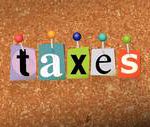 Starting in 2017, residents of Massachusetts can deduct contributions to a Massachusetts 529 college savings plan or a prepaid tuition program, up to $1,000 per individual or $2,000 per married couple filing jointly. This tax benefit will be available to taxpayers through the 2021 tax year, when the deduction is scheduled to expire.
Starting in 2017, residents of Massachusetts can deduct contributions to a Massachusetts 529 college savings plan or a prepaid tuition program, up to $1,000 per individual or $2,000 per married couple filing jointly. This tax benefit will be available to taxpayers through the 2021 tax year, when the deduction is scheduled to expire.
Massachusetts has two college savings plans, a 529 college savings plan and a pre-paid tuition plan. Both plans are eligible for this new income tax deduction.
MEFA U.Fund College Investing 529 Plan
Massachusetts’ U. Fund College Investing Plan, 529 Plan, is managed by Fidelity. The Massachusetts Educational Financing Authority (MEFA) U.Fund plan receives pretty good ratings by both residents & non-residents according to Savingforcollege.com. It features three age-based options; one using Fidelity mutual funds; one using Fidelity index mutual funds; and a third multi-firm option with portfolios that invest in funds offered by several different companies. The plans also offer 11 static options, and one option that invest in an interest-bearing deposit account.
Massachusetts U.Plan Prepaid College Tuition Plan
Massachusetts offers the U.Plan Prepaid College Tuition Plan, which serves the same purpose as a prepaid tuition 529 plan. Participants buy tuition certificates that lock in tuition and mandatory fees at current rates. Earnings on the bonds that back the certificates are tax free. Prepaid tuition 529 plans typically have a limited group of participating schools, and the U.Plan can only be used at one of approximately 80 Massachusetts colleges or universities. Both state and non-state residents can participate. Contributions to the U.Plan are eligible for these new Massachusetts income tax deductions.
529 Plans
Earnings in a 529 plan grow free of tax charges, which is a major tax benefit. When you withdraw earnings for eligible educational expenses, you do not pay state or federal income taxes on the withdrawal. For Massachusetts’ U.Fund plan, eligible expenses include tuition, fees, room and board, books and other necessary expenses. Earnings from 529 accounts are exempt from federal and Massachusetts taxes, as long as the money is used for qualified education expenses, such as tuition, fees, books, as well as room and board. If you withdraw funds for non-qualifying expenses, then you have to pay income taxes on earnings and an additional 10-percent tax penalty.
Massachusetts residents have benefitted from the tax-deferred growth offered by the 529 college savings plans and now can also get an income tax deduction in years when a contribution to a Massachusetts 529 plan is made. Taxpayers who contribute to a MEFA U.Fund 529 college savings plan can deduct up to $1,000 for single tax payers, heads of household and married individuals filing separately and $2,000 for married couples filing a joint return.
Consider Funding or Contributing To a MA 529 Plan
Prior to 2017, MA did not have a deduction or tax benefit for MA residents using the MA plans, so people shopped other states for 529 plans. If you are a Massachusetts resident and currently have a 529 plan from another state, you may want to consider establishing and contributing to a MA 529 plan in 2017 in order to receive this tax deduction.
If you are a Massachusetts resident and currently paying for higher education, you may want to contribute to a MA 529 plan in order to receive the income tax deduction because withdrawals from the 529 plan can be taken at any time, as long as they are used for qualified higher education expenses (such as, tuition, room and board, books, and computer equipment).
However, any non-qualified distributions from a 529 plan, unless due to the beneficiary’s death, disability or receipt of a scholarship, will result in “recapture of the deduction,” in addition to a 10% federal penalty and ordinary income taxes on the earnings, which results when the plan is not used for qualified higher education costs. Make sure you use any 529 plan distributions for qualified educational expenses, so you do not lose the tax benefits.
 The Surface Transportation Act of 2015 (“the Highway Act”) revised filing deadlines for partnership tax returns, C corporation tax returns, and foreign information reporting (FinCen 114/FBAR) effective for 2016 tax returns.
The Surface Transportation Act of 2015 (“the Highway Act”) revised filing deadlines for partnership tax returns, C corporation tax returns, and foreign information reporting (FinCen 114/FBAR) effective for 2016 tax returns. Generally, April 15 of each year is the due date for filing your federal individual income tax return.
Generally, April 15 of each year is the due date for filing your federal individual income tax return. The Internal Revenue Service recently announced that the tax season will officially begin Monday, January 23, 2017.
The Internal Revenue Service recently announced that the tax season will officially begin Monday, January 23, 2017. Beginning, January 1, 2017, standard mileage rates for the use of an automobile will be:
Beginning, January 1, 2017, standard mileage rates for the use of an automobile will be: